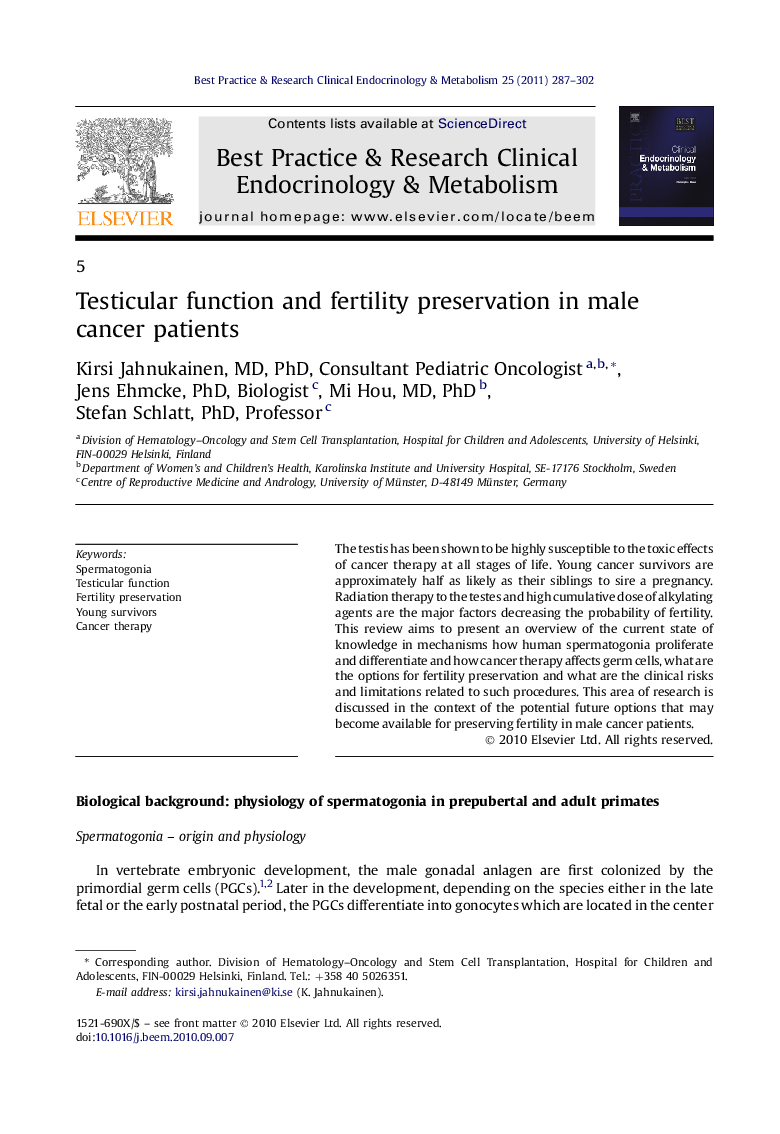| Article ID | Journal | Published Year | Pages | File Type |
|---|---|---|---|---|
| 2792031 | Best Practice & Research Clinical Endocrinology & Metabolism | 2011 | 16 Pages |
The testis has been shown to be highly susceptible to the toxic effects of cancer therapy at all stages of life. Young cancer survivors are approximately half as likely as their siblings to sire a pregnancy. Radiation therapy to the testes and high cumulative dose of alkylating agents are the major factors decreasing the probability of fertility. This review aims to present an overview of the current state of knowledge in mechanisms how human spermatogonia proliferate and differentiate and how cancer therapy affects germ cells, what are the options for fertility preservation and what are the clinical risks and limitations related to such procedures. This area of research is discussed in the context of the potential future options that may become available for preserving fertility in male cancer patients.
